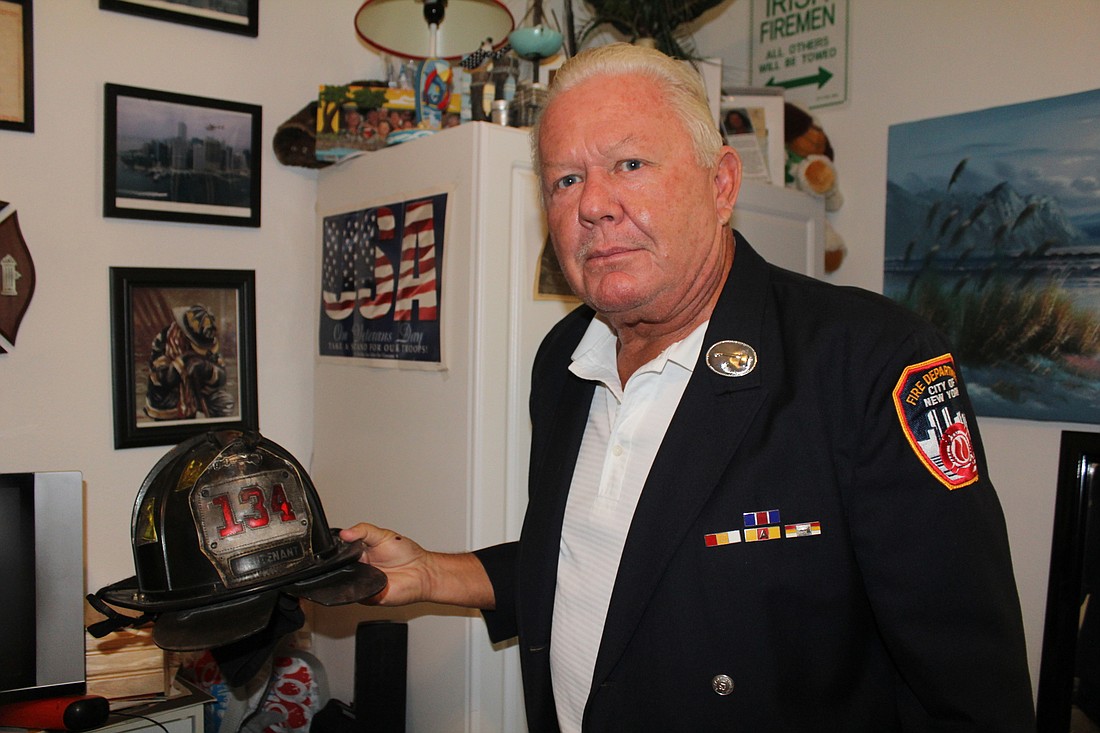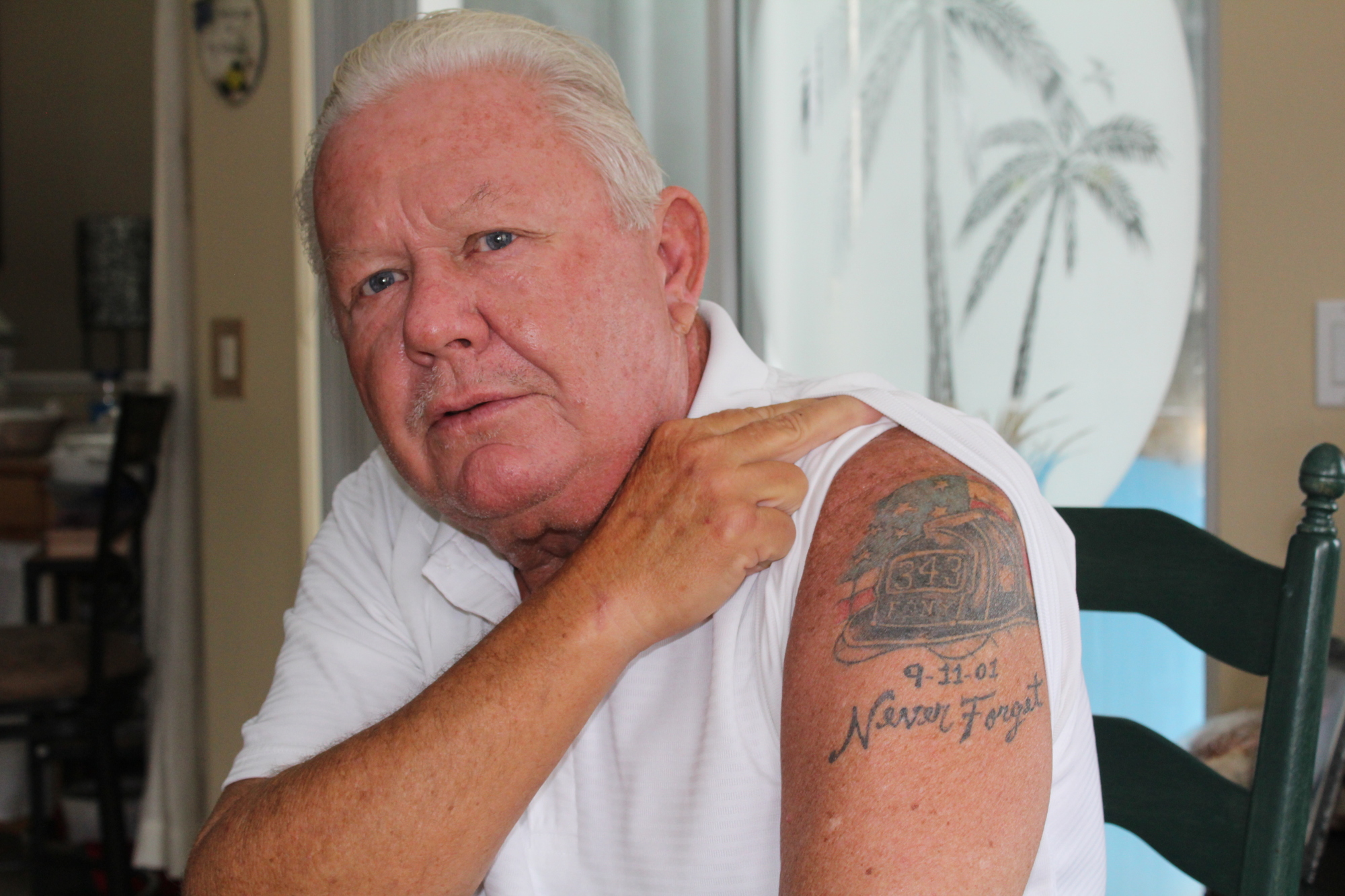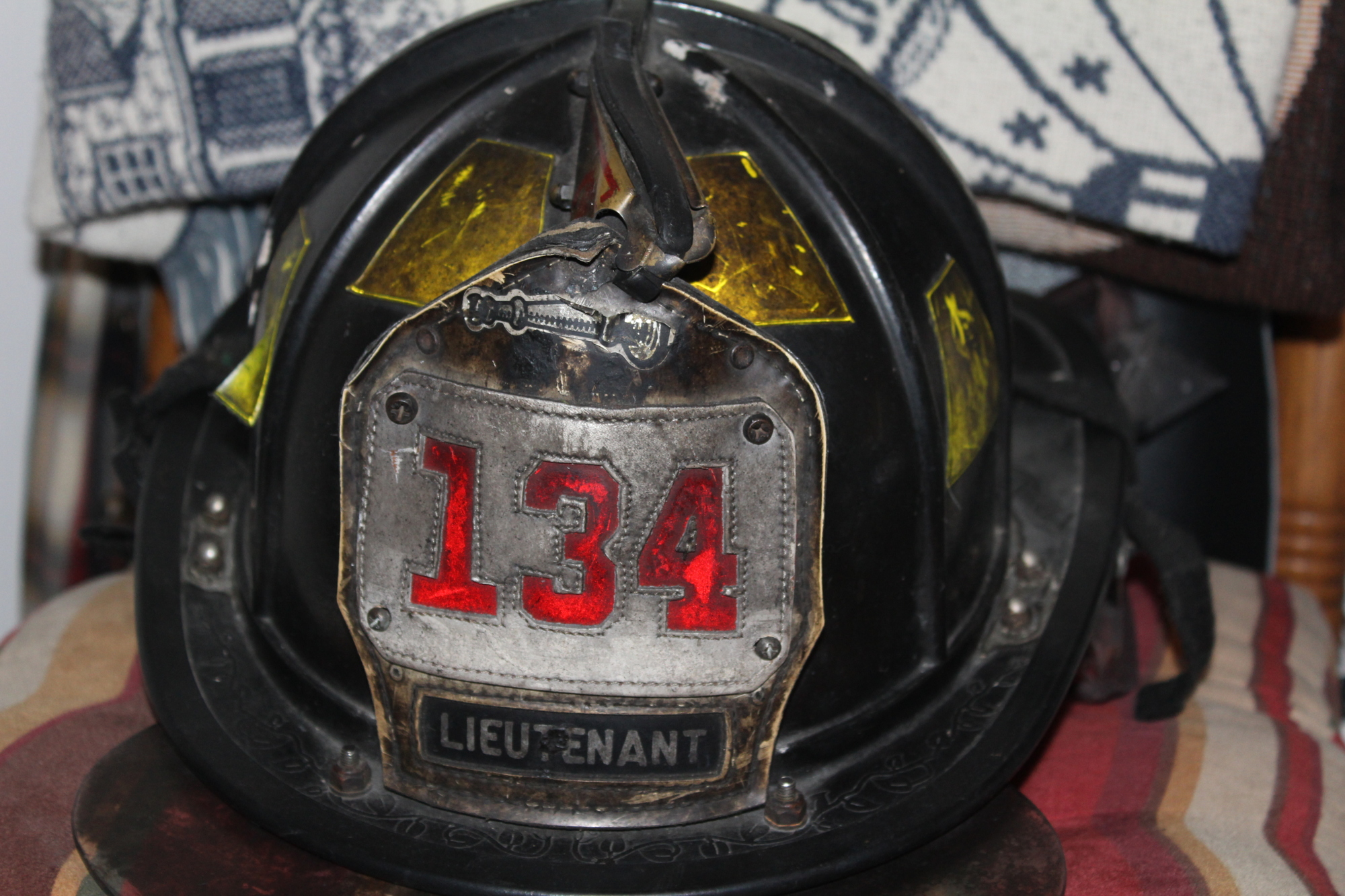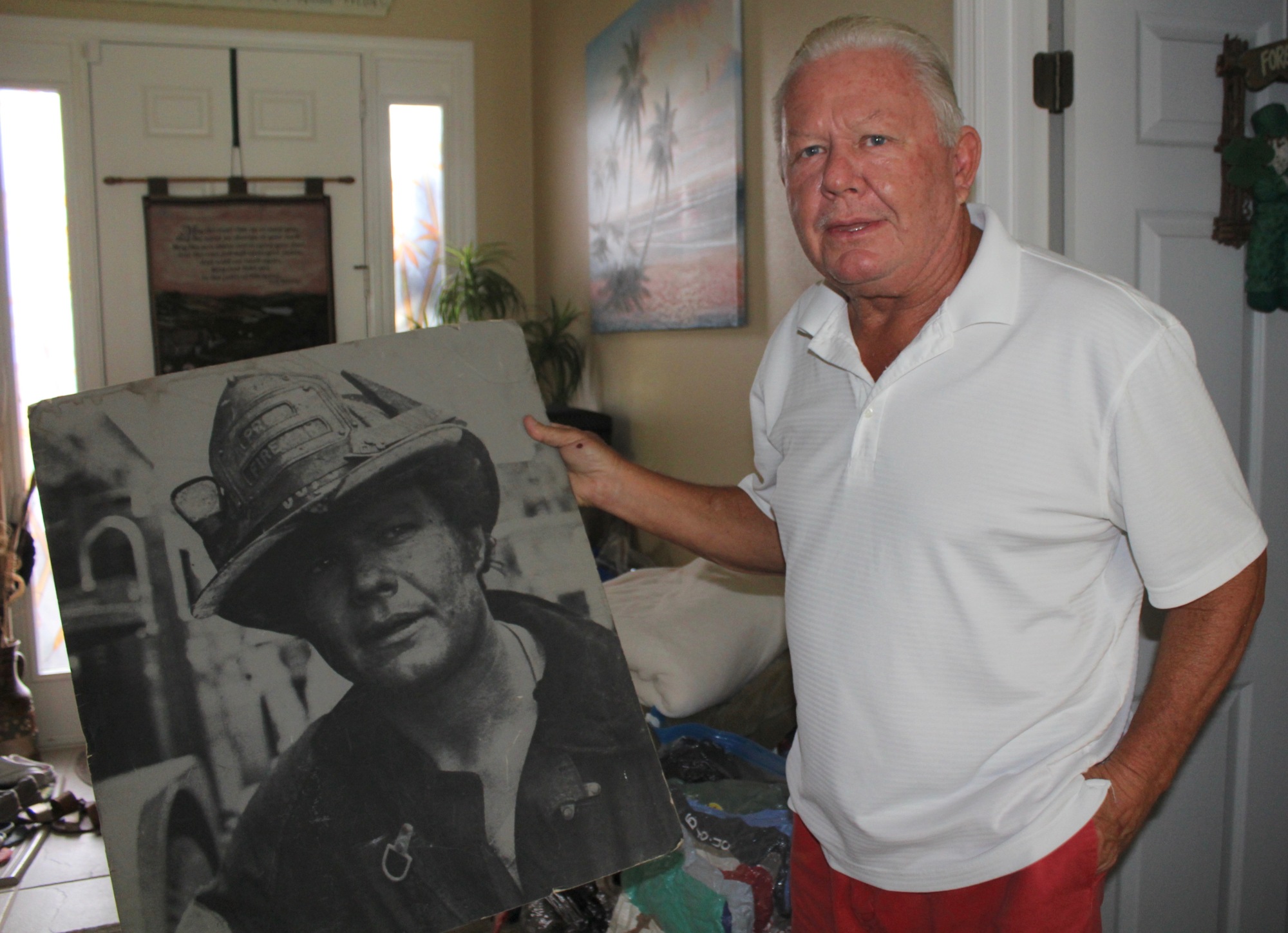- February 5, 2026
-
-
Loading

Loading

On the morning of Sept. 11, 2001, Gerard McParland, then a lieutenant in the New York City Fire Department, was playing golf in Maryland with 15 other firefighters who called themselves the “old timers.”
When they first saw photos of the World Trade Center in flames, none of them knew what to do, but they quickly checked out of their hotel and headed straight for Manhattan.

“There was four or five of us in the car,” the 66-year-old retired fireman said of his drive back. “As we were going north, the wind was blowing south that day, so the entire drive on the way up you could see the plume of smoke coming from the other way. We knew what it was, but we weren't real sure.”
Both the Garden State Parkway and Verrazano-Narrows Bridge in Brooklyn were closed, and only those with proper identification could cross.
McParland remembers how beautiful the weather was until it began to rain later that night, the first of many nights McParland would spend sorting through debris at Ground Zero.
“It was like a big hole of just smoke, you could see it coming right at us,” McParland said. “It was a nice day, a beautiful day, that day, but that night it started to rain, and because of the mist, it kept all the soot and everything from the buildings hanging around in the air. It looked muddy.”
The “muddy,” smoke-filled air lingered. Not just around the city, but on the first responders, too.

“It was all over everything, all over everybody,” McParland said.
“He came home covered in white ash, it was terrible,” Donna McParland, Gerald's wife, said. “He smelt so smoky.”
McParland spend a month going back and forth between the firehouse and the recovery site.
He describes most of the scene as just steel and rubble, through which he and a massive team searched for survivors or remains.
“You would find things, and you didn't know what it was,” McParland said. “One time later on, I think it was somebody's knee or something that they were pulling out, and every time they found something they stopped, and we didn't know who it was or what it was but you just knew it was something.”
There were no bodies to be found. McParland said the best way to described the scene was “pulverized.”
“You never found a piece of wood,” McParland said. “Those buildings had cabinets, couches, chairs, and you knew that it was 100 stories of buildings with offices and office furniture, and there was no wood, it was just steel.”
McParland said the first night was chaotic.

“The original thing was that we were there to rescue, but there was nobody there to be rescued,” McParland said. “So it quickly became a recovery situation. Everybody responded the same way, because it was initially to rescue people, but when you got there, you realized that there was no rescuing going on. Everybody that was there had died. It was strictly recovery.”
Fire departments across the nation learned a lot from what took place on Sept. 11, “the worst day in the fire department’s history,” McParland said.
“In the normal procedures of a fire, you go in, fight a fire and you come out,” McParland said. “That was just different. Because they cut the buildings in half and they came down. It was the strangest thing because nobody knew they were going to come down, and the guys that went in thought never thought they wouldn’t be coming out. It became a gravesite for a lot of people.”
McParland describes Sept. 11, 2001 as the day “we found out that the age of innocence was over.” That there are people in the world that have the capacity to do something so terrifying to the American people.
“We found out that we are vulnerable to anything and everything,” McParland said.
Many firefighters nationwide often talk about “survivor’s guilt.” Why were they not there? Why were they still alive while hundreds of other fireman lost their lives that day?
After many years of reflecting on his weeks sorting through the rubble at the site, he has reached the conclusion that despite losing many of his colleagues — 343 firefighters died that day — he remains grateful for his life.
“As years went on, I decided that I'm glad I was in Maryland,” McParland said. “If you weren’t there, it wasn't your time. We got there later on, but everything was done. The people that got killed were killed. It wasn’t my turn, it wasn't meant to be.”